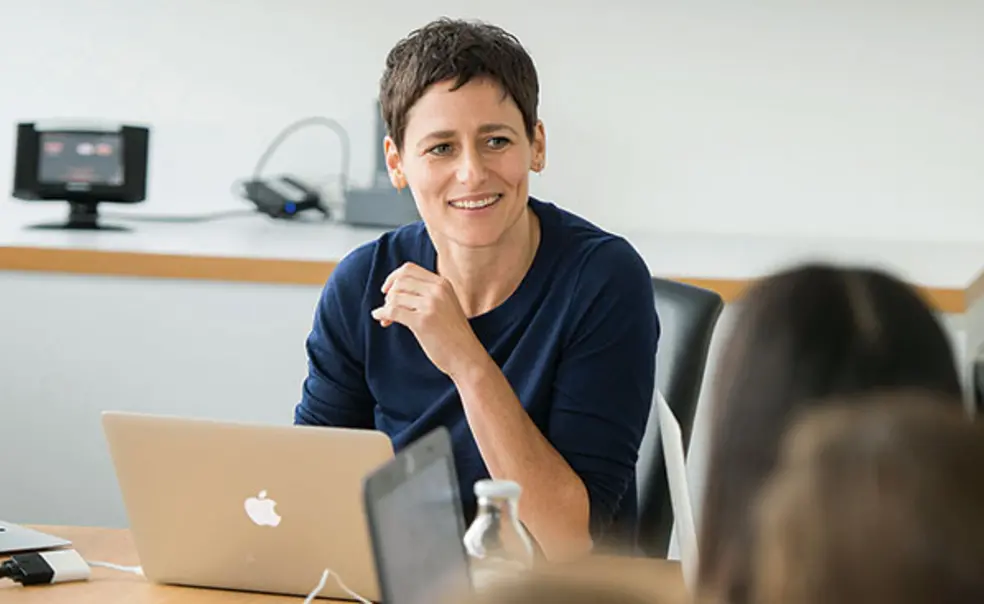Betsy Levy Paluck: The Good Message
Psychologist wins MacArthur ‘genius grant’ for studies on combating intolerance, bullying
Betsy Levy Paluck, a professor of psychology and public affairs, had a burning secret this fall: Several weeks before it was announced on Oct. 11, she was told she’d been awarded a “genius grant” by the MacArthur Foundation. When the foundation’s camera crew showed up before the announcement to get footage in her lab for its website, Paluck told her students it was for a documentary. “I thought people would be, like, ‘What documentary?’ and ask all these questions,” she said at small celebration held at Robertson Hall. “Luckily they didn’t. They were just like, ‘All right.’”
Paluck’s work operates on a simple premise: Because people tend to make concessions to popular opinion, she has found ways to modulate discrimination by signaling — through various media — that society shuns certain hateful ideals. She has tested this notion in fraught locales from post-genocide Rwanda to hierarchical high schools, and so far her research has yielded results that are being heralded as a viable path to bridging deep societal rifts.
In 2002, during her graduate work at Yale, where she also received her bachelor’s degree, Paluck discovered while teaching a course on hate speech and political intolerance that there were no psychological studies of how to reduce prejudice and conflict.
Using theories of social psychology, Paluck designed an experiment to try to measure ethnic tolerance in post-genocide Rwanda by interviewing listeners of a popular radio soap opera about a divided society that ultimately reunites. By comparing their ideals to those in a group that listened to another show about health promotion, she discovered that while the soap listeners’ individual assumptions about race remained unchanged, the program imbued its audience with an assumption that tolerance is an accepted principle in their community, thereby reducing racial stigmas. She recently found a similar phenomenon afoot in the United States: Study participants were questioned before and after same-sex marriage was legalized, and while individual beliefs remained unchanged, the majority reported a perceived increase in acceptance for it after the ruling.
In an ongoing study that involves 25,000 New Jersey high schoolers, Paluck identified students with high visibility within the school through data about whom they spent their time with in person and online. She and her research team found that by targeting these students for anti-prejudice interventions, a message of tolerance spread throughout the school more effectively than when it was delivered by adults. These measures have resulted in steep declines in harassment and bullying within the targeted schools.
In an interview with NPR, Paluck said it was still too early to know what exactly she’ll do with the unrestricted $625,000 award that comes with the grant. “One goal is to find creative ways to promote collaboration among activists, NGOs, and social scientists,” she said. “I also want to promote and train the next generation of scholars to do this kind of work.”












No responses yet